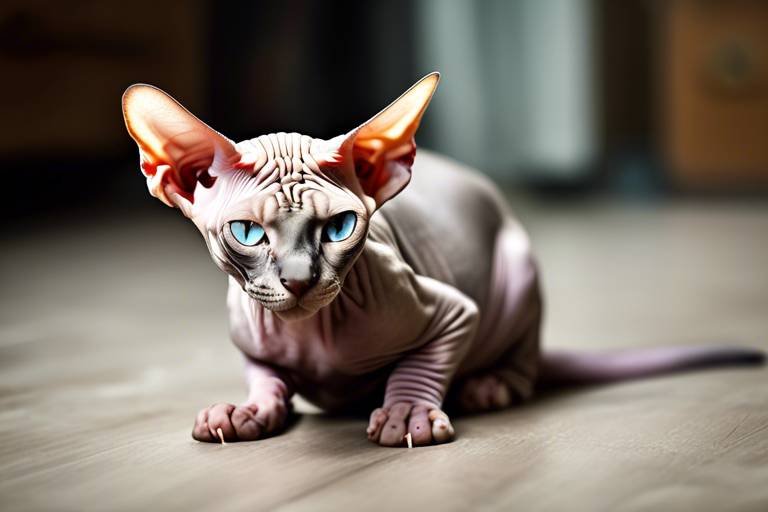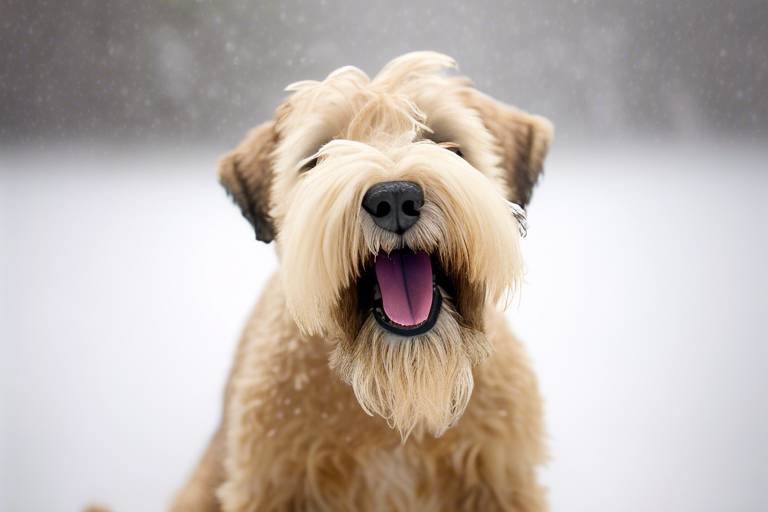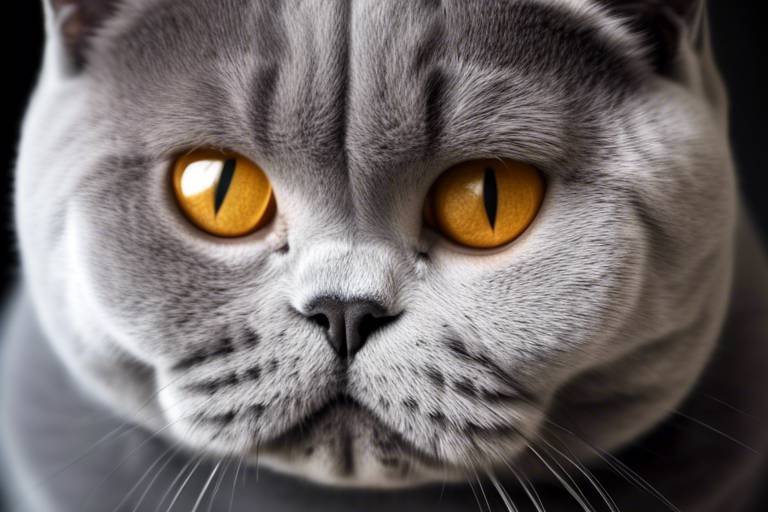Why Pomeranians Are Such Popular Pets
Pomeranians have taken the pet world by storm, and it's easy to see why! These little bundles of joy are not just cute; they embody a unique blend of personality, charm, and adaptability that makes them one of the most sought-after dog breeds. From their fluffy coats that resemble cotton candy to their big, expressive eyes, Pomeranians are irresistibly adorable. But their popularity isn't just skin deep. Let’s dive into the reasons that make Pomeranians such beloved companions.
One of the standout features of Pomeranians is their affectionate nature. They thrive on human interaction and are known for forming strong bonds with their owners. Imagine coming home after a long day, and your Pomeranian greets you with a wagging tail and excited barks, as if you were the greatest treasure in the world! Their loyalty and warmth create a comforting atmosphere, making them excellent companions for individuals and families alike. Whether you're curled up on the couch or taking a stroll in the park, a Pomeranian’s unwavering affection will always be by your side.
Pomeranians are not just cute; they are full of life! Their lively and playful demeanor can easily transform a mundane day into a joyous adventure. These little dogs have a knack for entertaining, often showcasing quirky behaviors that leave us laughing. Picture this: a Pomeranian chasing its own tail, or playfully barking at its reflection in the mirror! Their antics can brighten anyone's day, and their boundless energy is contagious. It's like having a tiny comedian at home, always ready to lift your spirits.
Another reason Pomeranians are so popular is their intelligence. These dogs are quick learners and can master commands and tricks with relative ease. For families who enjoy interactive play and training, Pomeranians can be a delightful challenge. They thrive on mental stimulation, and engaging them in training sessions can be both fun and rewarding. Think of it as a game where both you and your Pomeranian can grow together, building a stronger bond with each new trick learned!
To enhance the training experience, using positive reinforcement techniques is highly effective. Rewarding your Pomeranian with treats, praise, or playtime when they successfully learn a command not only motivates them but also solidifies trust between you two. This method fosters a loving relationship, making training sessions something your furry friend looks forward to. Who wouldn’t want to see their Pomeranian learn to sit, stay, or even do a little dance?
Proper socialization is vital for Pomeranians to develop into well-rounded pets. Early exposure to different people, environments, and other animals helps them become confident and friendly companions. Imagine a Pomeranian who is comfortable meeting new friends at the park or enjoying a family gathering without feeling anxious. This adaptability makes them perfect for various lifestyles, allowing them to fit seamlessly into any home.
Pomeranians are incredibly adaptable, making them suitable for a variety of living situations. Whether you live in a cozy apartment or a spacious house, these little dogs can thrive. Their small size means they don’t require vast amounts of space to roam, which is a huge plus for city dwellers. Just think of them as the perfect little roommates who bring joy without taking up too much room!
While Pomeranians love to play, their exercise requirements are relatively low compared to larger breeds. This makes them an excellent choice for individuals or families with a more relaxed lifestyle. You don't need to worry about long runs or extensive outdoor activities. A few short play sessions throughout the day can keep your Pomeranian happy and healthy.
Engaging your Pomeranian in indoor play is simple and fun. Activities like fetch, tug-of-war, or using puzzle toys can provide both mental stimulation and physical activity. These games not only keep your pup entertained but also strengthen the bond between you two. It’s like having a mini workout buddy who keeps you active while you both enjoy some quality time together!
When the weather is nice, taking your Pomeranian on outdoor adventures can be a delightful experience. Their small size allows for easy transport, whether it’s in a pet carrier or a backpack. Imagine a sunny day at the park, where your Pomeranian can frolic in the grass, chase after leaves, or simply bask in the sun. These outings not only provide exercise but also create cherished memories that last a lifetime.
Understanding the health and care needs of Pomeranians is crucial for potential owners. Regular grooming, veterinary check-ups, and a balanced diet are essential for their overall well-being and longevity. Grooming helps maintain their fluffy coats and prevents matting, while routine vet visits ensure they stay healthy. A balanced diet tailored to their size and energy levels will keep them vibrant and active. After all, a happy Pomeranian is a healthy Pomeranian!
- Are Pomeranians good with kids? Yes, Pomeranians can be great companions for kids, especially when socialized properly.
- How often should I groom my Pomeranian? Regular grooming is recommended, ideally every 4-6 weeks, to keep their coat healthy.
- Do Pomeranians bark a lot? Pomeranians are known to be vocal, but proper training can help manage excessive barking.
- What is the average lifespan of a Pomeranian? Pomeranians typically live between 12 to 16 years with proper care.
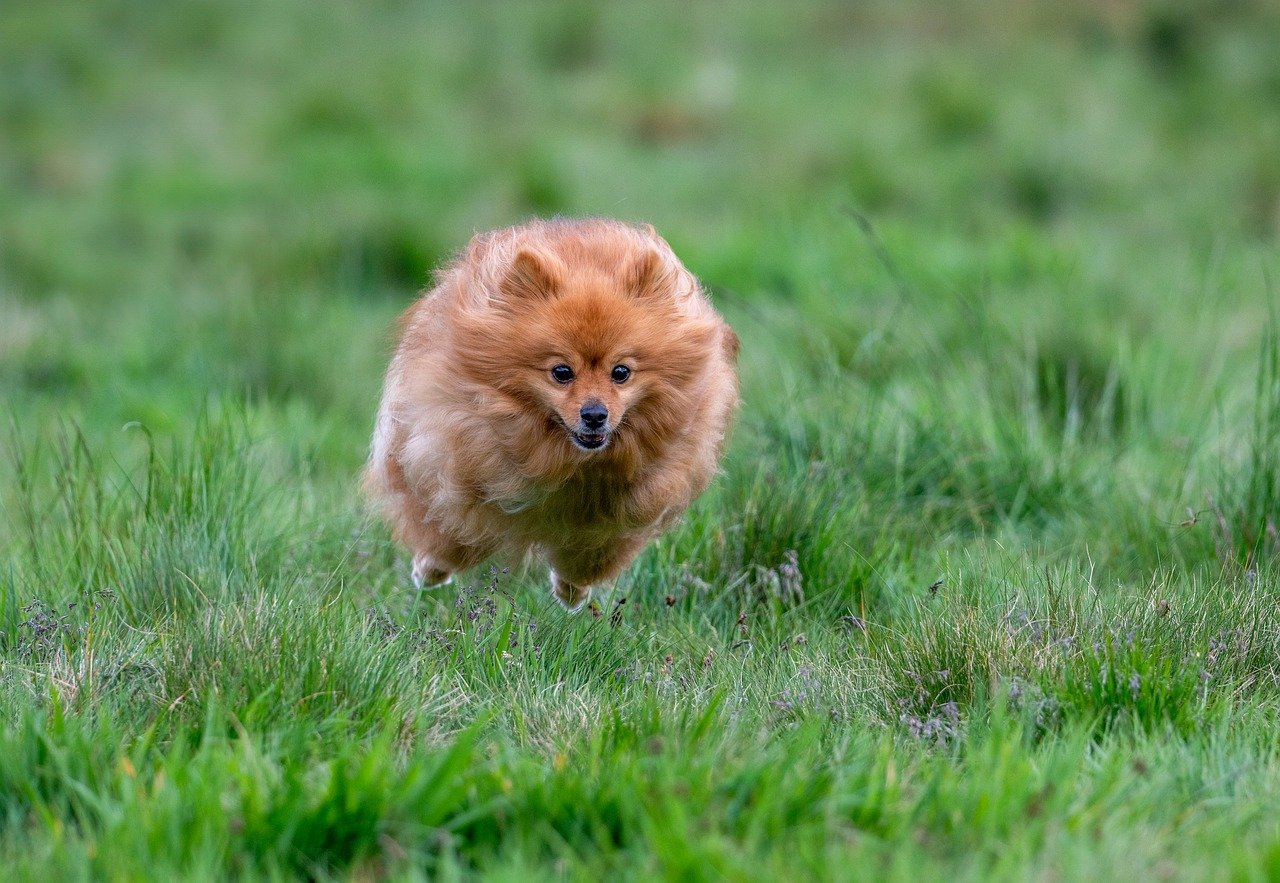
Affectionate Companionship
Pomeranians are often described as loving companions, and it's easy to see why. These little furballs have a knack for forming deep connections with their owners, making them more than just pets; they become family members. Their loyalty is unmatched, and they thrive on human interaction, often following their owners from room to room, eagerly seeking affection and attention. Imagine coming home after a long day to a tiny, fluffy creature bouncing with joy, tail wagging, and eyes sparkling with excitement. It's the kind of welcome that melts your heart!
One of the most delightful aspects of Pomeranians is their ability to read human emotions. They seem to know when you're feeling down and will snuggle up to you, offering comfort in their own unique way. This intuitive nature makes them excellent therapy animals, as they have a natural talent for providing emotional support. In fact, many Pomeranian owners report that their pets can sense when they need a little extra love, and they never hesitate to deliver it.
Furthermore, Pomeranians are known for their playful antics that can easily lift anyone's spirits. Whether it’s a silly bark, a goofy hop, or a playful pounce, their vibrant personalities shine through in every interaction. They love to engage in games, and their enthusiasm is contagious. It’s not uncommon to find yourself laughing out loud as your Pomeranian performs its latest trick or simply rolls around in pure joy. This playfulness fosters a strong bond between pet and owner, creating a relationship that is both fun and fulfilling.
However, it’s important to remember that Pomeranians thrive on consistent companionship. They do not like to be left alone for long periods, as this can lead to separation anxiety. Ensuring that they have plenty of social interaction, whether with family members or other pets, is crucial for their emotional health. Many owners find that having a second pet can help alleviate feelings of loneliness in their Pomeranian, allowing them to play and bond together, which enhances their overall happiness.
In summary, Pomeranians are not just pets; they are affectionate companions who bring joy, laughter, and emotional support into our lives. Their loyalty and playful nature create a unique bond that can enrich any household. If you're considering adding a furry friend to your family, a Pomeranian might just be the perfect choice for a loving and engaging companion.
- Do Pomeranians get along with other pets? Yes, with proper socialization, Pomeranians can get along well with other dogs and even cats.
- How much grooming do Pomeranians need? Pomeranians require regular grooming to keep their coats healthy and free of mats. Daily brushing is recommended.
- Are Pomeranians good with children? Yes, they can be great with children, but it's essential to supervise interactions due to their small size.
- How long do Pomeranians live? Pomeranians typically live between 12 to 16 years, making them a long-term commitment.
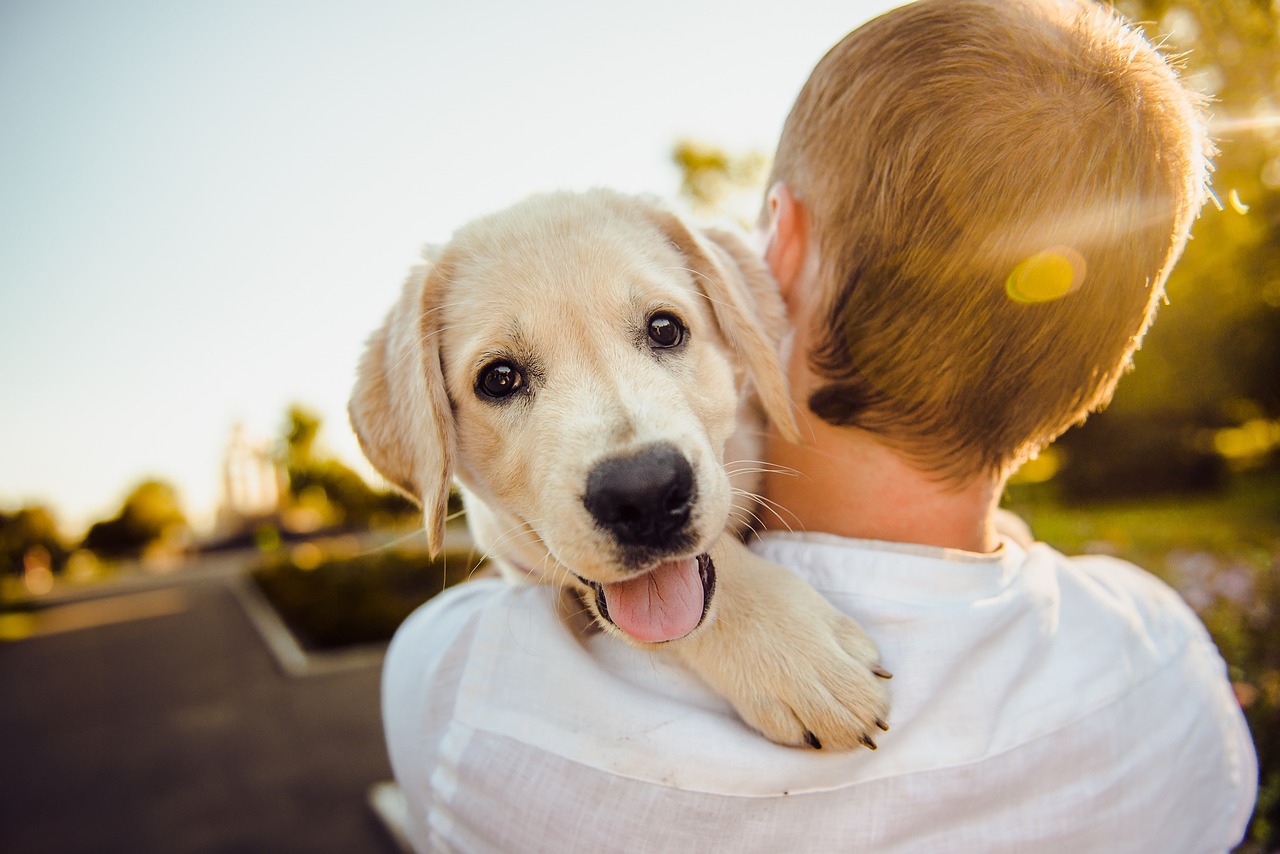
Vibrant Personalities
Pomeranians are not just pets; they are bundles of joy wrapped in fluffy fur. Their can light up any room, making them a favorite among dog lovers. Imagine walking into your home after a long day, and there they are, wagging their tails with pure excitement, ready to greet you as if you were a celebrity. This enthusiastic welcome is just the beginning of what makes these little dogs so special.
One of the standout features of Pomeranians is their playful demeanor. They have an innate ability to turn even the most mundane moments into fun-filled adventures. Whether it's chasing after a squeaky toy or performing a little dance during playtime, their antics are guaranteed to bring a smile to your face. Their lively spirit is contagious, and you'll often find yourself laughing at their quirky behaviors. It's like having a tiny comedian in your home, always ready to entertain!
Moreover, Pomeranians are known for their curiosity. They are little explorers, always eager to discover new things. This inquisitiveness can lead to amusing situations, such as getting stuck in a pile of laundry or trying to investigate the contents of a shopping bag. Their adventurous nature keeps life exciting and ensures that there's never a dull moment when they are around. It's as if they possess a childlike wonder that reminds us to embrace the joy in everyday life.
But it's not just their playful side that makes Pomeranians vibrant; they also have a knack for expressing emotions. These little dogs are incredibly in tune with their owner's feelings. Have you ever noticed how your Pomeranian seems to sense when you're feeling down? They may snuggle closer, offer a comforting lick, or even perform a silly trick to cheer you up. This emotional intelligence creates a deep bond between Pomeranians and their owners, making them not just pets but true companions.
In terms of social interactions, Pomeranians are generally friendly and sociable. They love to meet new people and often greet guests with enthusiasm. Their charismatic personalities can win over even the most reserved individuals. However, it's essential to remember that their small size does not mean they are timid. In fact, many Pomeranians possess a bold and confident attitude that can be quite surprising. They often believe they are much larger than they actually are, which can lead to amusing confrontations with bigger dogs!
In summary, the vibrant personalities of Pomeranians make them a delightful addition to any household. Their playful antics, emotional intelligence, and sociable nature ensure that life with a Pomeranian is never boring. If you're looking for a pet that can bring laughter, companionship, and joy into your life, a Pomeranian might just be the perfect fit!
- What is the average lifespan of a Pomeranian? Pomeranians typically live between 12 to 16 years, making them a long-term commitment.
- Do Pomeranians shed a lot? Yes, they have a double coat that sheds, especially during seasonal changes, so regular grooming is necessary.
- Are Pomeranians good with children? Pomeranians can be good with children, but supervision is essential due to their small size and energetic nature.
- How much exercise do Pomeranians need? They require moderate exercise, including daily walks and playtime, but are also content with indoor activities.
Intelligent and Trainable
Pomeranians are not just adorable fluff balls; they are also highly intelligent dogs that excel in learning new commands and tricks. This intelligence makes them incredibly trainable, which is a major draw for many pet owners. Imagine a tiny dog performing tricks like a circus performer, or mastering commands with just a few repetitions. It's no wonder these little furballs have become a favorite among families who enjoy engaging activities with their pets. Their eagerness to learn and please their owners creates a rewarding training experience, making every session feel like a game rather than a chore.
One of the most effective ways to train a Pomeranian is through positive reinforcement techniques. This training approach focuses on rewarding desired behaviors rather than punishing undesired ones. For instance, when your Pomeranian sits on command, offering a treat or verbal praise reinforces that behavior. This method not only enhances the learning experience but also strengthens the bond between you and your furry friend. Just like how a child thrives on encouragement, Pomeranians flourish when they feel loved and appreciated during training.
Moreover, socialization plays a crucial role in their development. Early exposure to different environments, people, and even other pets helps Pomeranians develop well-rounded personalities. When they are introduced to various situations as puppies, they grow up to be confident and friendly companions. Think of it as giving them a passport to the world, allowing them to explore and adapt with ease. A well-socialized Pomeranian is not just a better pet; they become a delightful addition to any family, making outings and gatherings more enjoyable.
In summary, if you're considering adding a Pomeranian to your family, be prepared for a delightful journey filled with learning and laughter. Their intelligence and trainability are just as remarkable as their charming personalities, making them a wonderful choice for those who appreciate an interactive and engaging pet.
- How long does it take to train a Pomeranian? Training a Pomeranian can vary based on the individual dog and the consistency of the owner, but many owners report seeing progress within a few weeks.
- Are Pomeranians easy to potty train? With patience and consistent positive reinforcement, Pomeranians can be successfully potty trained, although it may take some time.
- Can Pomeranians learn advanced tricks? Yes! Pomeranians are capable of learning advanced tricks and commands, especially when motivated by treats or play.
Positive Reinforcement Techniques
When it comes to training your adorable Pomeranian, using can make all the difference. Imagine trying to teach a child to ride a bike; would you rather praise them for their efforts or scold them for falling? The same principle applies to our furry friends! Positive reinforcement focuses on rewarding good behavior rather than punishing the bad, creating a happier and more trusting relationship between you and your pup.
One of the most effective ways to implement positive reinforcement is through treats. Every time your Pomeranian successfully follows a command or displays a desired behavior, reward them with a small treat. This not only encourages them to repeat the action but also makes training a fun and enjoyable experience. Over time, you can gradually reduce the frequency of treats, replacing them with verbal praise or affection, which helps maintain the behavior without over-reliance on food.
In addition to treats, playtime can be a fantastic reward. Pomeranians are playful by nature, and using their favorite toys as a reward can motivate them to learn quickly. For instance, if your pup sits on command, immediately follow up with a fun game of tug-of-war or fetch. This not only reinforces the behavior but also strengthens your bond as you engage in activities that both of you enjoy.
Another critical aspect of positive reinforcement is consistency. Just like a well-oiled machine, your training efforts should run smoothly. Ensure that everyone in your household is on the same page regarding commands and rewards. If one person allows a behavior while another corrects it, your Pomeranian may become confused. Consistency helps them understand what is expected of them and builds their confidence in learning new commands.
To illustrate the effectiveness of positive reinforcement, consider the following table that outlines common behaviors and corresponding rewards:
| Behavior | Reward |
|---|---|
| Sit | Treat & Praise |
| Come | Playtime with a Toy |
| Stay | Affection & Petting |
Lastly, remember that patience is key. Training takes time, and every Pomeranian learns at their own pace. Celebrate small victories, and don’t be discouraged by setbacks. With a sprinkle of love, a dash of patience, and a whole lot of positive reinforcement, you’ll find that your Pomeranian not only learns commands but also becomes a well-adjusted and happy member of your family.
Q: How long does it take to train a Pomeranian?
A: Training time can vary, but with consistent practice and positive reinforcement, many Pomeranians can learn basic commands within a few weeks.
Q: What type of treats work best for training?
A: Small, soft treats that are easy to chew and swallow are ideal. You can also use their favorite toys or praise as rewards.
Q: Can I train my Pomeranian without treats?
A: Absolutely! While treats are effective, you can use verbal praise, affection, or playtime as rewards as your dog learns.
Socialization Skills
Socialization is a crucial aspect of raising a well-rounded Pomeranian. These fluffy little balls of energy thrive on interaction, and introducing them to a variety of environments, people, and other animals is essential for their development. Think of socialization as the foundation of a strong, confident personality. Just like humans, dogs need to learn how to navigate the world around them, and Pomeranians are no exception.
When Pomeranians are exposed to different sights, sounds, and experiences from an early age, they become more adaptable and less fearful of new situations. This exposure can take many forms, such as visits to dog parks, encounters with other pets, or simply meeting new people during walks. It’s not just about getting them used to being around others; it’s about helping them build positive associations with the world. The more they experience, the more comfortable they become, which ultimately leads to a happier, healthier dog.
To ensure effective socialization, consider implementing a structured approach. Start with short, positive experiences and gradually increase the complexity and duration. For instance, you might begin by inviting friends over for a relaxed gathering where your Pomeranian can meet new faces in a controlled setting. As they become more comfortable, you can take them out to busier places, like local markets or parks. Always monitor their reactions and provide reassurance as needed.
Here are some tips to enhance your Pomeranian's socialization skills:
- Start Early: Begin socialization during the critical period of 3 to 14 weeks.
- Positive Experiences: Focus on creating enjoyable encounters to foster a positive attitude.
- Variety is Key: Expose them to different people, pets, and environments.
- Consistency: Regularly engage in socialization activities to reinforce their learning.
Remember, every Pomeranian is unique, and some may require more time and patience than others. The goal is to create a confident companion who can enjoy life to the fullest, whether they’re meeting new friends or simply lounging at home. By investing time in their socialization, you’re not just raising a pet; you’re nurturing a lifelong friend who will bring joy and laughter into your life.
Q: How can I tell if my Pomeranian is well-socialized?
A: A well-socialized Pomeranian will display confidence in new situations, show curiosity rather than fear, and interact positively with people and other pets. They should be comfortable exploring new environments and not overly anxious in unfamiliar settings.
Q: What age should I start socializing my Pomeranian?
A: The best time to start socializing your Pomeranian is during the critical socialization period, which is between 3 to 14 weeks of age. However, it's never too late to start; older Pomeranians can still benefit from socialization.
Q: Can I socialize my Pomeranian too much?
A: While socialization is important, it's essential to monitor your Pomeranian's comfort level. Overwhelming them with too many new experiences at once can lead to stress. Gradually introduce them to new situations, and always prioritize their comfort.
Adaptability to Living Spaces
This article explores the reasons behind the popularity of Pomeranians as pets, including their temperament, appearance, care requirements, and the joy they bring to families and individuals alike.
Pomeranians are known for their loving nature, making them excellent companions. Their loyalty and affection contribute significantly to their popularity among pet owners seeking a close bond with their furry friends.
With their lively and playful demeanor, Pomeranians bring joy and energy to any household. Their quirky behaviors and playful antics make them entertaining pets that can brighten anyone's day.
Pomeranians are highly intelligent dogs that can learn commands and tricks quickly. This trainability makes them suitable for families who enjoy engaging with their pets through training and interactive play.
Using positive reinforcement techniques can enhance the training experience for Pomeranians. Reward-based methods help build trust and strengthen the bond between the pet and owner during the learning process.
Proper socialization is crucial for Pomeranians to develop well-rounded personalities. Early exposure to various environments and people helps them become confident and friendly companions.
Pomeranians are remarkably adaptable, making them perfect companions for various living situations. Whether you reside in a bustling city apartment or a cozy suburban home, these little furballs can thrive in almost any environment. Their small size allows them to comfortably maneuver in tight spaces, which is a significant advantage for city dwellers. Imagine living in a high-rise building; you can easily carry your Pomeranian in a pet carrier or a stylish backpack, allowing you to explore the urban landscape together.
Moreover, their playful nature means they don’t require vast expanses of space to be happy. A small living room can transform into a playground with just a few toys scattered around. Pomeranians are known to adapt their energy levels according to their surroundings, so even a short hallway can serve as a racetrack for a spirited game of chase. This adaptability is a game-changer for individuals or families with limited living space.
However, while they can adjust to smaller areas, it’s essential to provide them with a stimulating environment. Here are some tips for ensuring your Pomeranian thrives in a compact living situation:
- Regular Playtime: Make sure to engage in daily play sessions to keep their spirits high.
- Interactive Toys: Invest in puzzle toys that challenge their minds and keep them occupied.
- Outdoor Time: Even if you live in a small space, regular walks or trips to the park are vital for their physical health.
In essence, Pomeranians are not just cute and cuddly; they are designed to fit seamlessly into your lifestyle, regardless of the size of your living space. Their ability to adapt makes them an appealing choice for many pet owners, providing companionship without the need for extensive room to roam.
While Pomeranians enjoy playtime, their exercise requirements are relatively low compared to larger breeds. This makes them a suitable choice for individuals or families with a more relaxed lifestyle.
Engaging Pomeranians in indoor play activities can help meet their exercise needs. Simple games like fetch or puzzle toys can provide mental stimulation and physical activity without requiring outdoor space.
Taking Pomeranians on outdoor adventures can be a delightful experience. Their small size allows for easy transport, making trips to parks and nature trails enjoyable for both the pet and owner.
Understanding the health and care needs of Pomeranians is essential for potential owners. Regular grooming, veterinary check-ups, and a balanced diet contribute to their overall well-being and longevity.
Pomeranians require moderate exercise. Daily walks and playtime are usually sufficient to keep them healthy and happy.
Yes! Pomeranians can be excellent family pets, especially if they are socialized properly from a young age.
Pomeranians do shed, but regular grooming can help manage their fur and keep your home clean.
Absolutely! Pomeranians are well-suited for apartment living due to their small size and adaptability.
A balanced diet of high-quality dog food is essential for Pomeranians. Consult your vet for specific dietary recommendations.
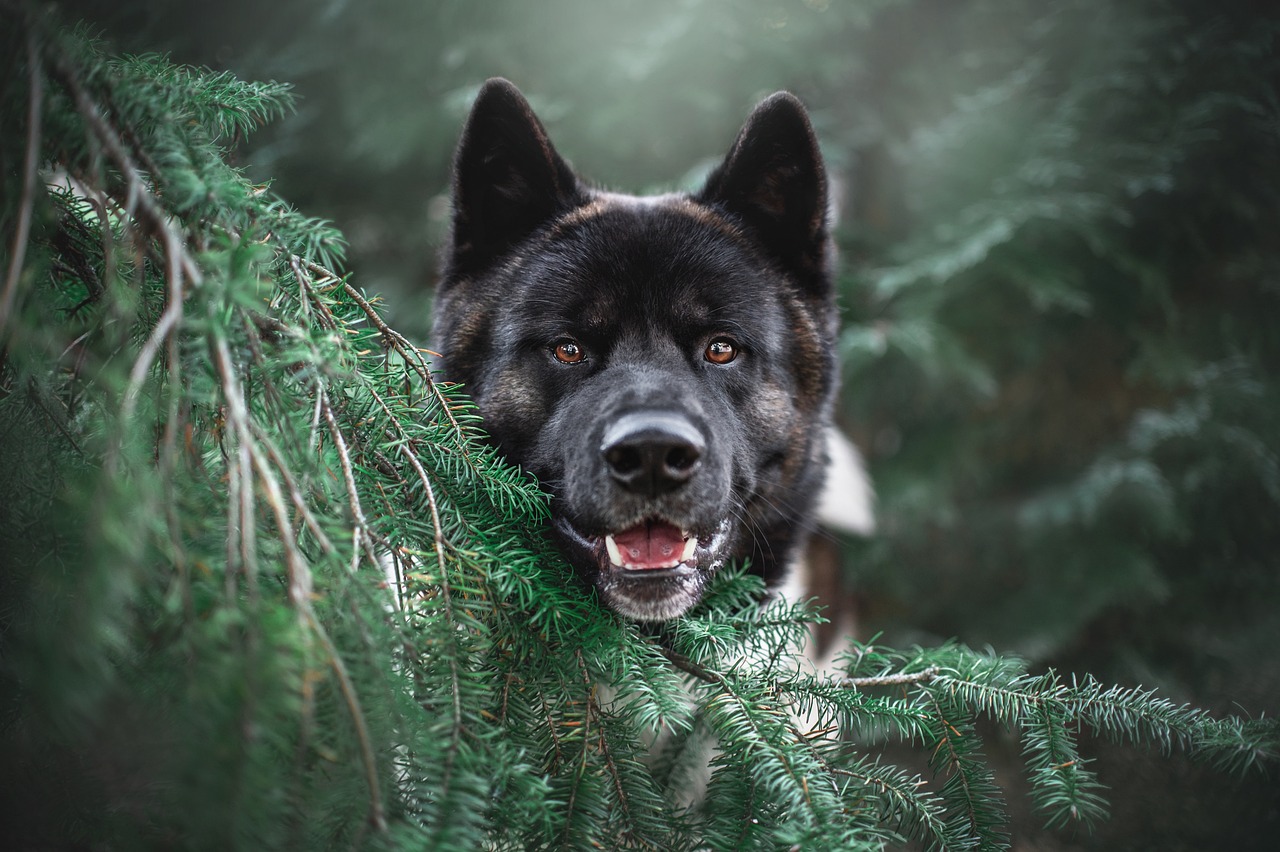
Minimal Exercise Needs
Pomeranians are often celebrated for their adorable fluffiness and vibrant personalities, but one of the most appealing aspects of this breed is their . Unlike larger breeds that require extensive daily runs or vigorous outdoor activities, Pomeranians are perfectly content with a more relaxed lifestyle. This characteristic makes them an excellent choice for individuals and families who may not have the time or energy for long walks or intense play sessions.
While Pomeranians do enjoy their playtime, their exercise requirements are relatively low. A couple of short walks each day, combined with some indoor play, is usually sufficient to keep them happy and healthy. For instance, you might find that a brisk 15 to 30-minute walk in the morning and another in the evening is all they need to feel satisfied. This makes them particularly well-suited for apartment living or for those with busy schedules. Imagine coming home after a long day, and instead of gearing up for a marathon, you can simply take your Pomeranian for a quick stroll around the block!
Engaging in indoor play activities can also help meet their exercise needs without venturing outside. Simple games like fetch, tug-of-war, or even hide-and-seek can provide both mental stimulation and physical activity. Pomeranians love to chase after toys, and their playful nature means they will keep you entertained as much as you entertain them. You could even set up a small obstacle course in your living room using cushions and toys, turning your home into a fun playground! The possibilities are endless, and you won’t need a sprawling backyard to keep your furry friend happy.
However, it’s important to remember that while Pomeranians may not require extensive exercise, they still thrive on interaction and engagement. Regular playtime strengthens the bond between you and your pet, and it also helps to prevent behavioral problems that can arise from boredom. Think of it this way: just like us, dogs need mental and physical stimulation to stay happy. So, even if their exercise needs are minimal, don’t forget to carve out time for some fun!
In addition to indoor play, taking your Pomeranian on outdoor adventures can be a delightful experience. Their small size allows for easy transport, making trips to parks and nature trails enjoyable for both you and your pet. The fresh air and new sights provide a change of scenery that can invigorate both of you. Just be sure to keep an eye on them, as they can be quick to dart off if something catches their attention!
To summarize, Pomeranians are a fantastic choice for those looking for a low-maintenance pet that still brings a lot of joy and companionship into their lives. Their minimal exercise needs make them adaptable to various living situations, allowing for a fulfilling pet ownership experience without the stress of extensive exercise regimens.
- How much exercise do Pomeranians need? Generally, Pomeranians require about 30 minutes of exercise each day, which can be split into short walks and playtime.
- Can Pomeranians live in apartments? Yes, Pomeranians are well-suited for apartment living due to their small size and lower exercise requirements.
- What indoor activities can I do with my Pomeranian? You can engage in activities like fetch, tug-of-war, or even puzzle toys to keep them entertained indoors.
- How often should I take my Pomeranian outside? Taking them out for a walk twice a day is usually sufficient, along with some playtime indoors.
Indoor Play Activities
When it comes to keeping your Pomeranian entertained indoors, the possibilities are as endless as their energy! These little furballs thrive on interactive play, and with a bit of creativity, you can turn your living room into a playground. One of the best activities is playing fetch. You might think, "How can a small dog like a Pomeranian enjoy fetch?" Well, these dogs are surprisingly agile and love to chase after toys. Just grab a soft ball or a plush toy, toss it a short distance, and watch your Pom sprint after it with enthusiasm. It's not just about the exercise; it's also about the bonding experience you share during these playful moments.
Another fantastic indoor activity is setting up an obstacle course. You can use household items like cushions, chairs, and boxes to create a fun and challenging course for your Pomeranian. This not only provides physical stimulation but also engages their minds as they navigate through the course. Imagine your Pomeranian weaving in and out of cushions, jumping over small boxes, and feeling like a champion! This kind of play can help build confidence and agility, making it an excellent way to keep them fit.
If you're looking for something that stimulates their brain as well as their body, consider puzzle toys. These toys are designed to challenge your dog's problem-solving skills. You can hide treats inside these toys, and your Pomeranian will have to figure out how to get to the goodies. This not only keeps them occupied but also provides mental stimulation, which is just as important as physical exercise. Plus, watching them figure it out is a joy in itself!
- Fetch: A classic game that helps burn off energy.
- Obstacle Course: Improves agility and confidence.
- Puzzle Toys: Stimulates their mind and keeps them engaged.
Lastly, don’t underestimate the power of simple tug-of-war. Using a tug toy, you can engage your Pomeranian in a friendly game that not only strengthens your bond but also provides a great workout. Just make sure to teach them when to let go, ensuring the game remains fun and safe. These indoor activities not only keep your Pomeranian entertained but also foster a deeper connection between you and your furry friend. So, get ready to have some fun, and remember, the more you engage with your Pomeranian, the happier they’ll be!
Q: How much indoor playtime does a Pomeranian need?
A: Pomeranians are energetic little dogs and typically need about 30 minutes to an hour of playtime each day, which can be easily split between indoor and outdoor activities.
Q: Can I train my Pomeranian indoors?
A: Absolutely! Indoor spaces can be perfect for training sessions. Just ensure you minimize distractions and use positive reinforcement techniques.
Q: What toys are best for indoor play?
A: Soft balls, tug toys, and interactive puzzle toys are great choices for indoor play with your Pomeranian.
Outdoor Adventures
Taking your Pomeranian on can be a delightful experience for both you and your furry friend. Imagine the joy of watching your little ball of fluff explore the great outdoors, their tail wagging with excitement as they sniff new scents and chase after leaves. Pomeranians, despite their small size, have a big heart for adventure and love to be part of their owner's activities. Whether it’s a stroll through the park or a hike on a nature trail, these little dogs are always up for some fun!
One of the best things about Pomeranians is their adaptability. Their small stature makes them easy to transport, whether you’re hopping into a car or taking public transport. This means you can easily bring them along on your outings without any hassle. Just imagine going for a picnic, with your Pomeranian happily playing in the grass, or exploring a new hiking trail together. They thrive on these experiences, and it’s a fantastic way to bond.
However, it’s essential to consider a few things before heading out:
- Safety First: Always keep your Pomeranian on a leash during outdoor adventures. Their curiosity can sometimes lead them into trouble, and you want to ensure they stay safe.
- Weather Awareness: Pomeranians have a thick double coat, which can make them susceptible to overheating in hot weather. Always check the temperature and ensure they have plenty of water on hand.
- Socialization: Outdoor adventures are a great opportunity for your Pomeranian to meet other dogs and people. This exposure helps them develop good social skills, essential for their overall temperament.
In addition to parks and trails, consider exploring dog-friendly beaches or lakes. Pomeranians often enjoy splashing in shallow water, and it’s a fantastic way for them to cool off on a warm day. Just be sure to supervise them closely, as their small size can make them vulnerable in deeper water.
Moreover, if you’re planning on a longer trip, you might want to look into pet-friendly accommodations. Many hotels and lodges welcome furry guests, so you can enjoy your getaway without leaving your Pomeranian behind. This way, your adventures can include your beloved pet, creating memories that will last a lifetime.
To sum it up, outdoor adventures with your Pomeranian are not only fun but also beneficial for their physical and mental health. They provide an excellent opportunity for exercise, socialization, and bonding with you. So, pack a few treats, grab a leash, and head out to explore the world with your little companion!
Q: How much exercise does a Pomeranian need daily?
A: Pomeranians typically need about 30 minutes of exercise each day, which can include walks, playtime, and mental stimulation activities.
Q: Are Pomeranians good for families with children?
A: Yes, Pomeranians can be great family pets, but it's essential to supervise interactions with young children to ensure both the child and the dog are safe and comfortable.
Q: Can Pomeranians be left alone for long periods?
A: Pomeranians are social dogs and may experience separation anxiety if left alone for too long. It's best to have someone check on them or consider a pet sitter if you’ll be away for an extended time.
Q: What should I pack for outdoor adventures with my Pomeranian?
A: Be sure to bring water, a leash, waste bags, some treats, and a portable dog bowl to keep your Pomeranian hydrated and fed during your outings.
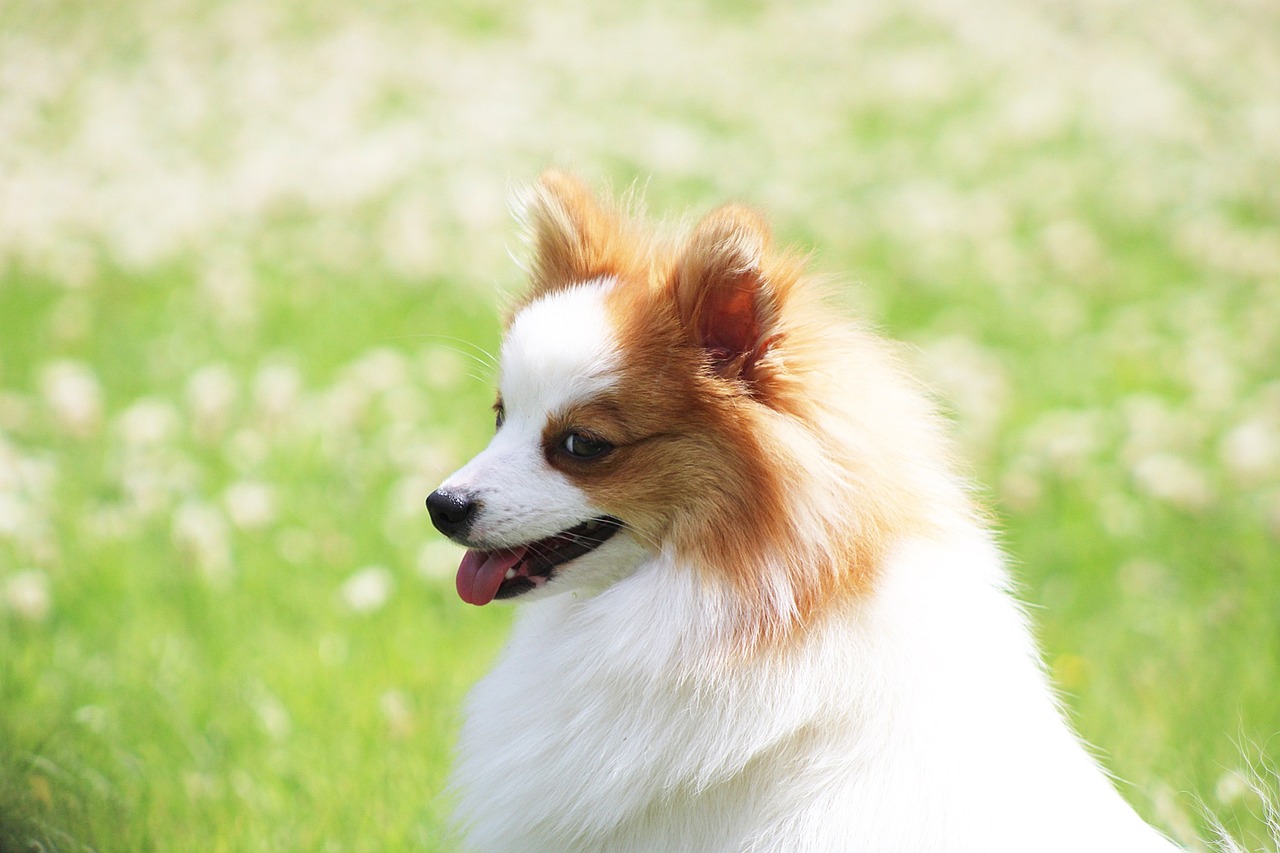
Health and Care Considerations
When it comes to owning a Pomeranian, understanding their health and care needs is crucial for ensuring a happy and long life for your furry friend. These pint-sized pups may be small in stature, but they require a fair amount of attention and care to thrive. One of the first things to consider is their grooming needs. Pomeranians have a thick double coat that requires regular brushing to prevent matting and to keep their fur looking its best. Ideally, you should brush their coat at least two to three times a week, and more frequently during shedding seasons.
Regular grooming not only helps maintain their appearance but also serves as an excellent opportunity to check for any skin issues or parasites. Additionally, you should schedule regular veterinary check-ups to catch any health concerns early on. Pomeranians are prone to certain health issues such as dental problems, patellar luxation, and heart conditions. Keeping up with vaccinations and preventive care is essential to mitigate these risks.
Another vital aspect of Pomeranian care is their diet. Providing a balanced diet tailored to their specific needs is key to maintaining their health. High-quality dog food, whether dry kibble or wet food, should be rich in protein and low in fillers. Since Pomeranians are small, portion control is also important to prevent obesity, which can lead to further health complications. Always consult your veterinarian for personalized dietary recommendations.
On the topic of exercise, while Pomeranians don’t require extensive physical activity, they still need a good amount of playtime to stay healthy and happy. Regular indoor and outdoor activities help keep their weight in check and stimulate their minds. Engaging in games like fetch or tug-of-war can be a fun way to bond with your Pomeranian while ensuring they get their daily dose of exercise.
| Health Consideration | Description |
|---|---|
| Grooming | Brush 2-3 times a week to prevent matting and check for skin issues. |
| Veterinary Check-ups | Regular visits to catch health problems early. |
| Diet | High-quality food tailored to their specific needs; portion control is essential. |
| Exercise | Regular playtime and short walks to maintain health and happiness. |
Finally, consider the importance of socialization. Early exposure to different people, environments, and other pets can help your Pomeranian develop a well-rounded personality. This not only makes them more adaptable but also less anxious in new situations. Remember, a well-cared-for Pomeranian is a happy Pomeranian, and your commitment to their health will undoubtedly strengthen the bond you share.
- How often should I groom my Pomeranian? Brush your Pomeranian at least 2-3 times a week to keep their coat healthy.
- What should I feed my Pomeranian? A balanced diet of high-quality dog food rich in protein is recommended.
- Do Pomeranians need a lot of exercise? They enjoy playtime but have lower exercise needs compared to larger breeds.
- How can I socialize my Pomeranian? Early exposure to various environments and people is key to developing their social skills.
Frequently Asked Questions
- What makes Pomeranians such affectionate pets?
Pomeranians are known for their loving and loyal nature. They thrive on companionship and often form strong bonds with their owners, making them feel like a part of the family. Their playful antics and cuddly demeanor can bring immense joy to any household.
- Are Pomeranians easy to train?
Absolutely! Pomeranians are highly intelligent dogs that respond well to training. With positive reinforcement techniques, such as treats and praise, they can learn commands and tricks quickly. Engaging them in training sessions not only stimulates their minds but also strengthens the bond between you and your furry friend.
- How much exercise do Pomeranians need?
While Pomeranians enjoy their playtime, their exercise needs are relatively low compared to larger breeds. A few short walks and some indoor play activities, like fetch or puzzle games, can keep them happy and healthy. They're perfect for individuals or families with a more relaxed lifestyle!
- Can Pomeranians adapt to apartment living?
Definitely! Pomeranians are well-suited for various living situations, including apartments and small homes. Their adaptability makes them ideal pets for city dwellers or anyone with limited space, as they don't require a large yard to thrive.
- What are the grooming needs for Pomeranians?
Pomeranians have a thick double coat that requires regular grooming to prevent matting and to keep their fur looking fabulous. Brushing them a few times a week, along with regular baths and professional grooming sessions, will help maintain their coat and overall health.
- How can I ensure my Pomeranian is well-socialized?
Socialization is key for Pomeranians to develop into well-rounded pets. Start early by exposing them to different environments, people, and other pets. Puppy classes, playdates, and outings can help them gain confidence and become friendly companions.
- What should I feed my Pomeranian?
A balanced diet is essential for your Pomeranian's health. Look for high-quality dog food that meets their nutritional needs, and consult with your veterinarian for specific recommendations based on your pet's age, weight, and health condition.












